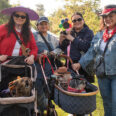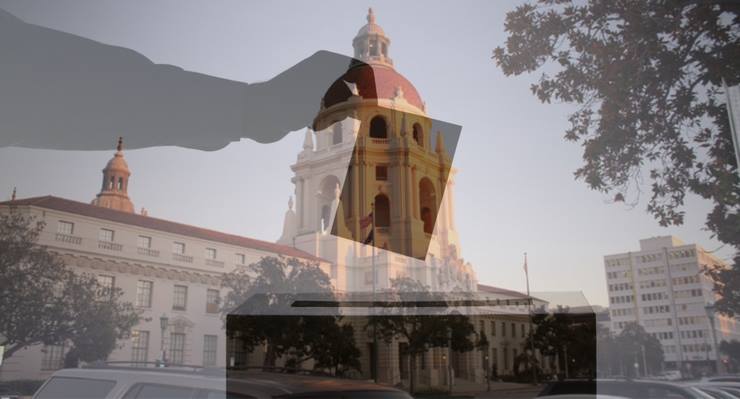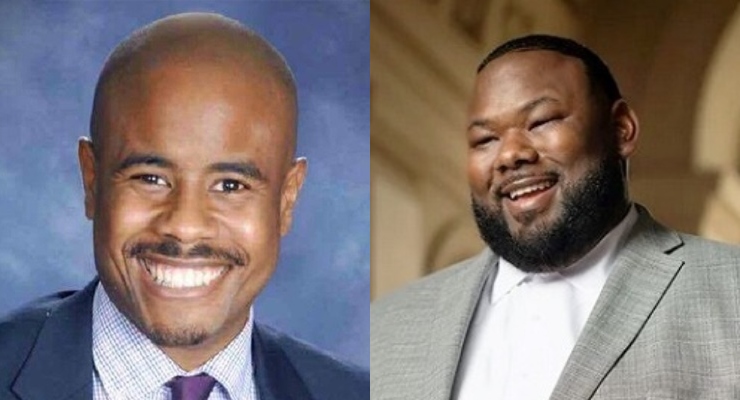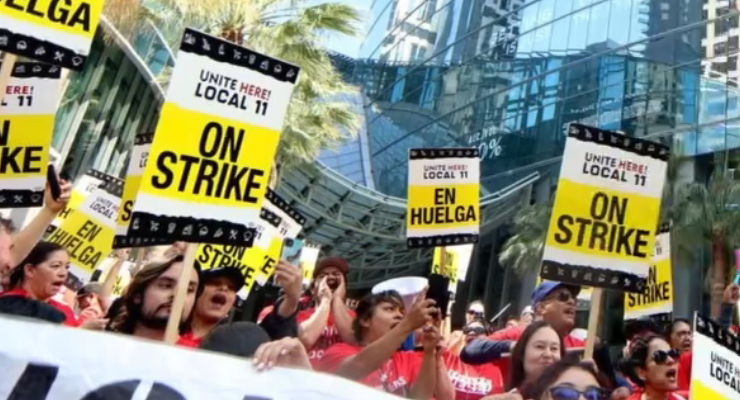
Microsoft founder and billionaire philanthropist visited Caltech on October 20 to learn about research being conducted in several labs on campus; to catch up with former Harvard classmate Caltech President Thomas Rosenbaum; and to participate in a question-and-answer session, moderated by professor of English and Dean of Undergraduate Students Kevin Gilmartin, with Caltech students at the Beckman Auditorium. We caught up with him after the event to discuss science, giving, and the value of a broad education.
Why did you choose to visit Caltech, and why now?
I tend to visit top universities. I always admire the work being done here, and a good friend of mine, [Caltech trustee] Ron Olsen, encouraged me to come to Caltech. It’s always energizing to hear about the science.
In your meetings with faculty today, what did you find most interesting and inspiring, particularly as it relates to the work of your foundation?
All of the biology stuff I saw was in line with the Foundation’s huge global health program. Cystic fibrosis is not a disease we work on, but [in the lab of Dianne Newman, Gordon M. Binder/Amgen Professor of Biology and Geobiology], they’re working on bacterial infections. The insights she has on bacterial infections are of great interest to us. For example, we talked about tuberculosis, which is a huge program area for us. Some of the new approaches she’s invented— including being able to make things more visible and how you get viruses in—are going to be helpful to us.
And then, some of it was more basic, like the optogenetics, which was super impressive, or looking at the mitochondria and understanding how deficits in mitochondria affect various disease including neurological and other aging disorders.
I’m personally investing in energy and I’ve known Nate Lewis [George L. Argyros Professor of Chemistry at Caltech] for a long time, so I got an update on the work he’s doing on solar fuels.
On your blog, you called on leaders to invest in great research institutions. What role do you think that institutions like Caltech can play in solving the great challenges facing humanity today?
Caltech’s doing an amazing job. It’s a real gem, and it’s able to be so ambitious partly because of the government research budgets and the philanthropy, but the government research budgets are the biggest parts of it. Caltech is able to attract top scientists and it’d be great if government research allowed Caltech to be more ambitious.
Nate Lewis and I went through a lot of things he’d be able to do if he had more research money. He and I were brainstorming about whether startups could, or should, do any part of that, and what trends are likely with energy research funding. The U.S. has been the best, even though the U.S. should do more. People complain appropriately that energy research funding hasn’t gone up much recently, but compared to other countries it’s much higher. The benefits are pretty dramatic.
In the Q&A, you talked about the transition from being someone who was focused on technology and computers to someone with a broader world-view. As STEM educators, how can we make sure that we provide a solid STEM education to help these students become the scientists and engineers of the future, but also make sure to give them that broad world view?
It’s a super important thing. In the Harvard curriculum—that’s where I was a dropout—they divided the world into three things: natural sciences, social sciences, and humanities, and forced you to take a diverse set across all three. I’m a natural scientist—I was in applied mathematics in my failed undergraduate career—or “early terminated.” “Failed” is a little too dramatic because my grades were quite good. The way their system worked, it was harder to know other sciences, so all my natural science time had to be in applied math.
Now I was a strange case. I audited as many courses as I was signed up for, and I never attended the course that I was signed up for—I attended the one I was auditing. So I got to go to a lot of courses and get a lot of diversity. But you have to be careful with trying to push people. The thing that works best is grabbing their interest.
I’ve worked with a guy named David Christian on a project called Big History. It was a college course, and I worked with him to turn it into a 9th-grade course. It provides a broad framework of how everything fits together. All your other knowledge can fit into that framework and it doesn’t wind up being disconnected and endless and confusing. I think people are more intellectually ambitious if they start to see the bridges between different pieces of knowledge.
When you speak to students like this, you’re talking to the next generation of scientists and engineers—maybe even the next Bill Gates. What message do you want them to walk away with?
Well, there is an irony that I went back to Harvard and gave a speech and Mark Zuckerberg was in the audience [laughs]. Now, I don’t claim it had an influence on him, and he and I are good friends, but it was kind of a funny thing.
I do think it helped me that I could read about business careers or science careers where people had been wildly ambitious and managed to do well. [Caltech Professor of Physics and Nobel Laureate] Richard Feynman was somebody who I admired. He gave a series of lectures at Cornell, called the Messenger Series, that are aimed at people who are not scientists and which try to explain what science is and why it’s fun and interesting. It’s just brilliant.
Hopefully I can encourage people to be ambitious. When you’re young, you often see things that other people don’t see. A ton of the creativity comes out of people in their 20s or 30s. And in this case, they’re at one of the best institutions in the world. It’s an amazing thing. And the institution is amazing at picking the right people to come, so their capabilities are pretty incredible.














 0 comments
0 comments


